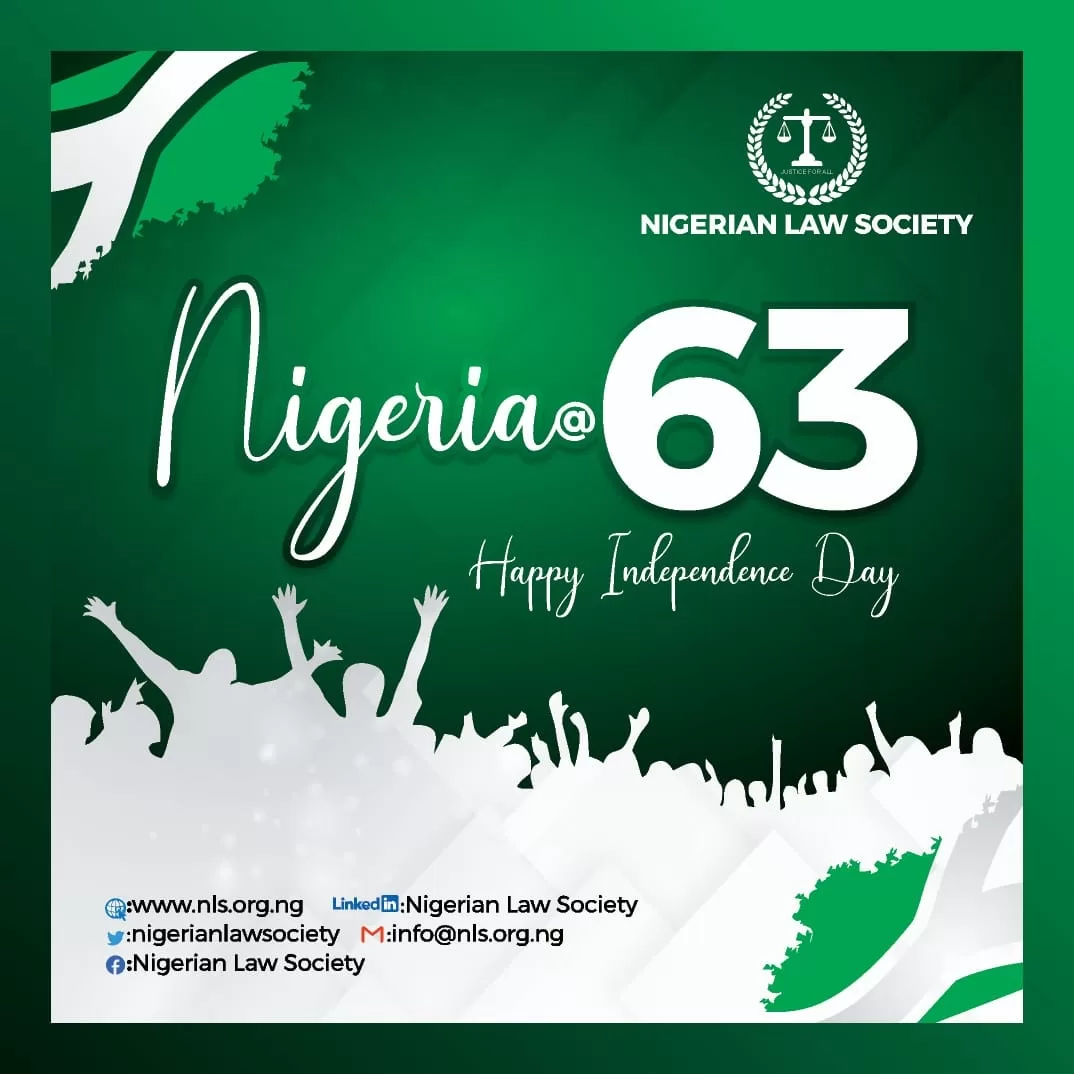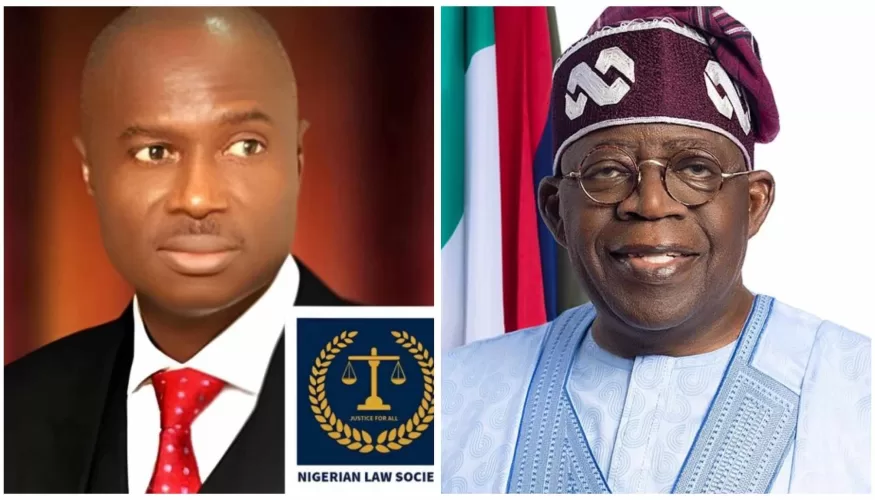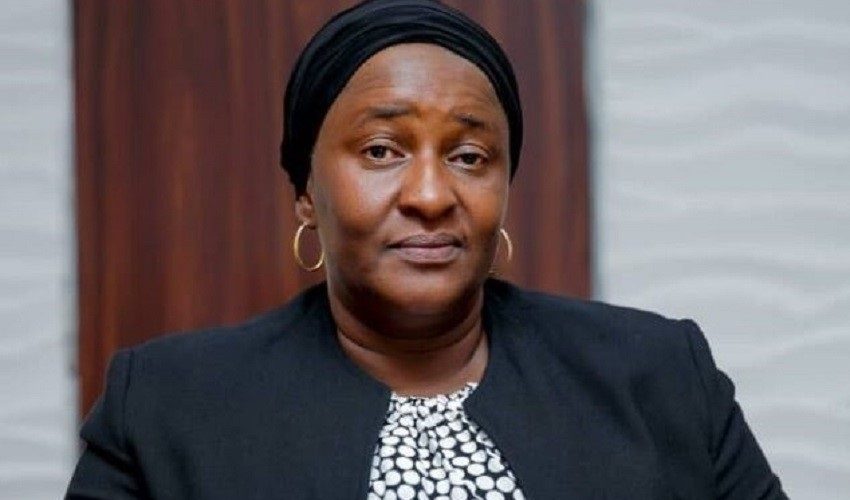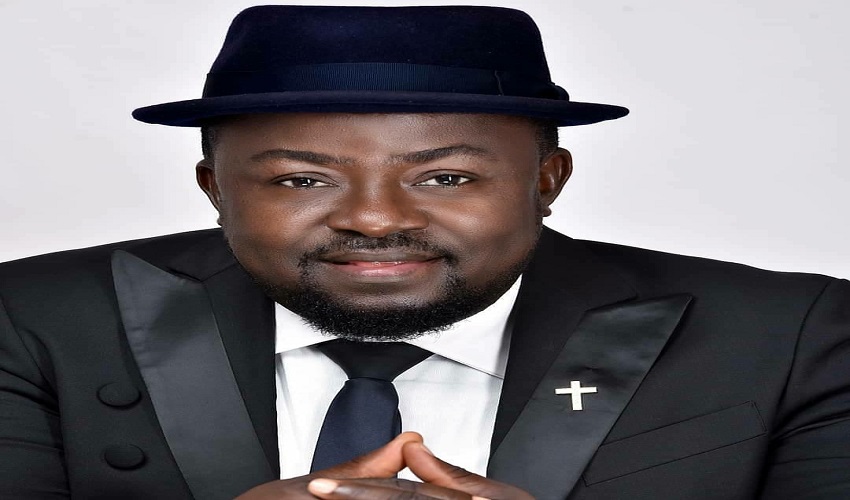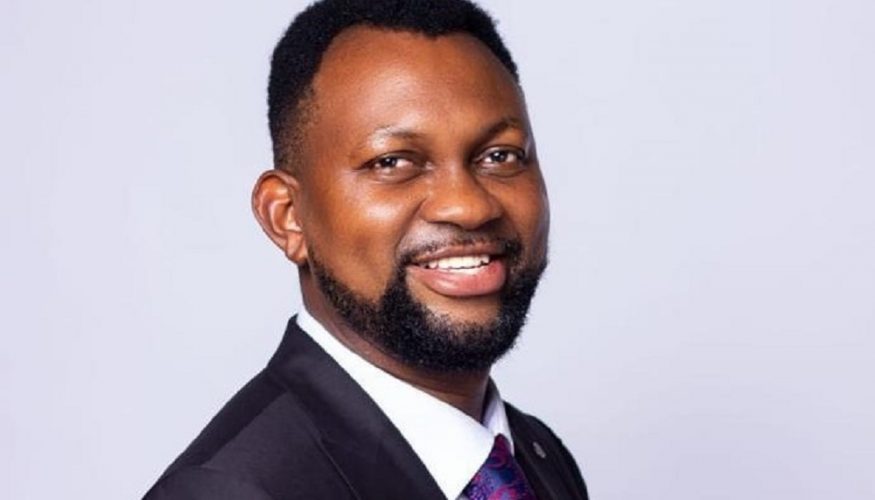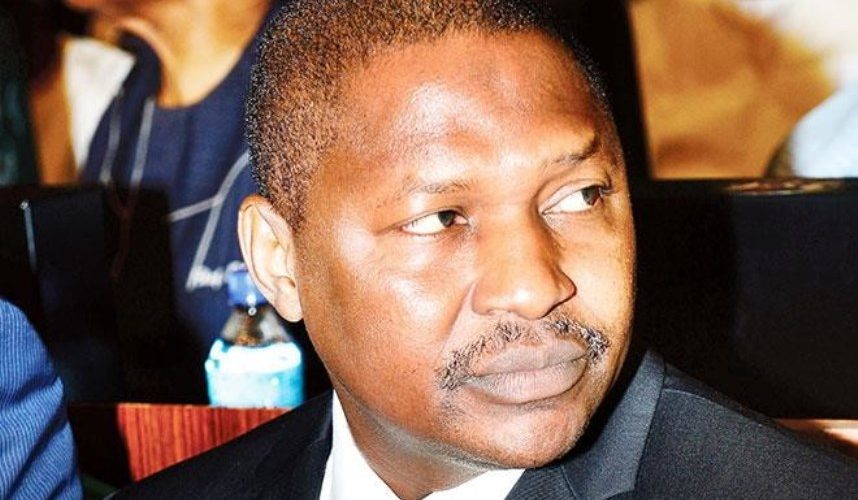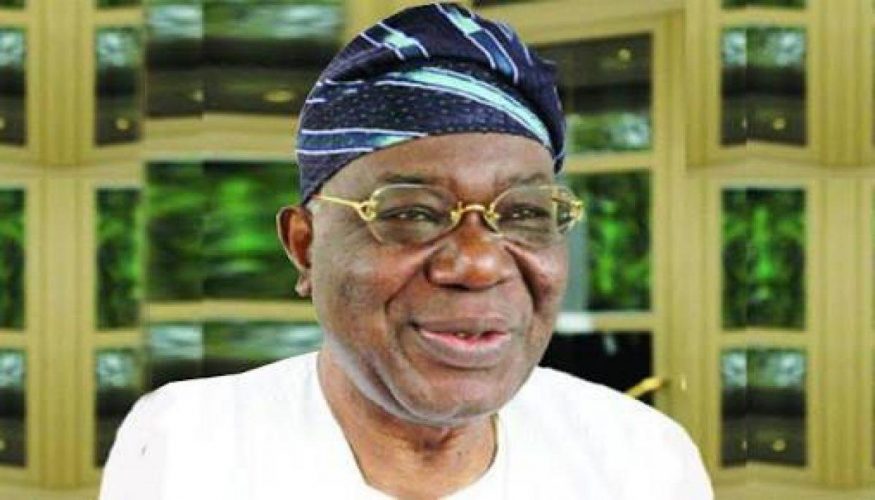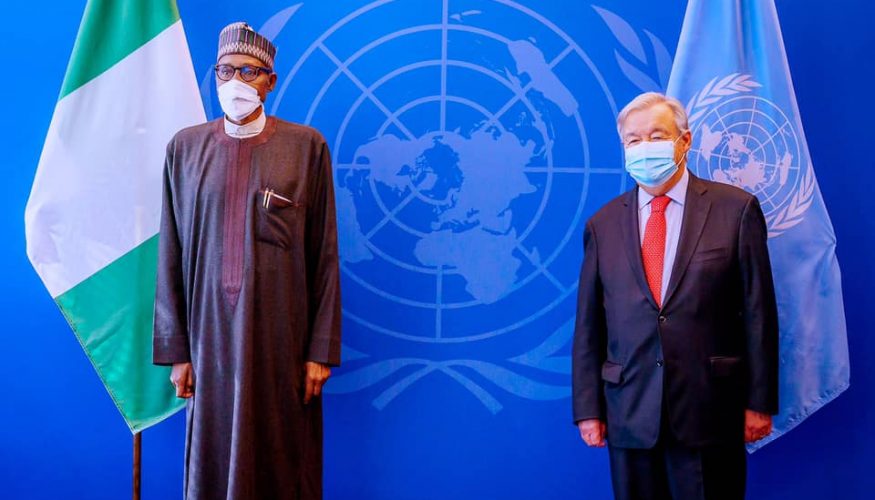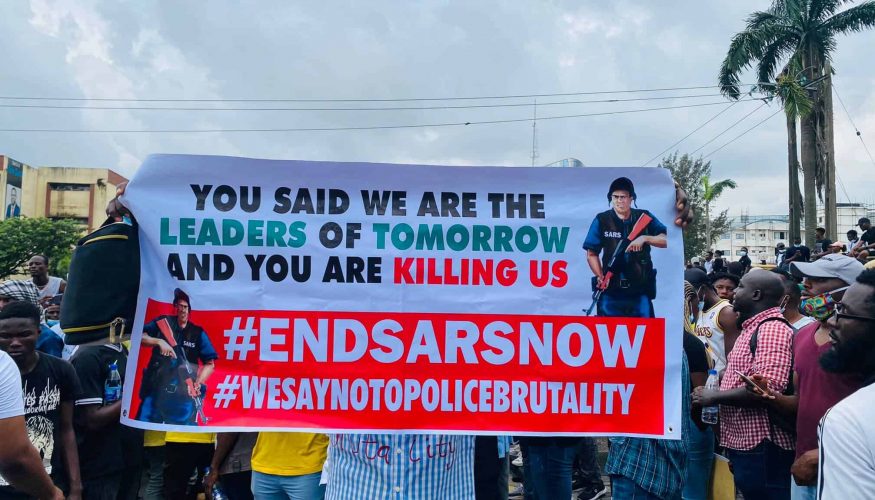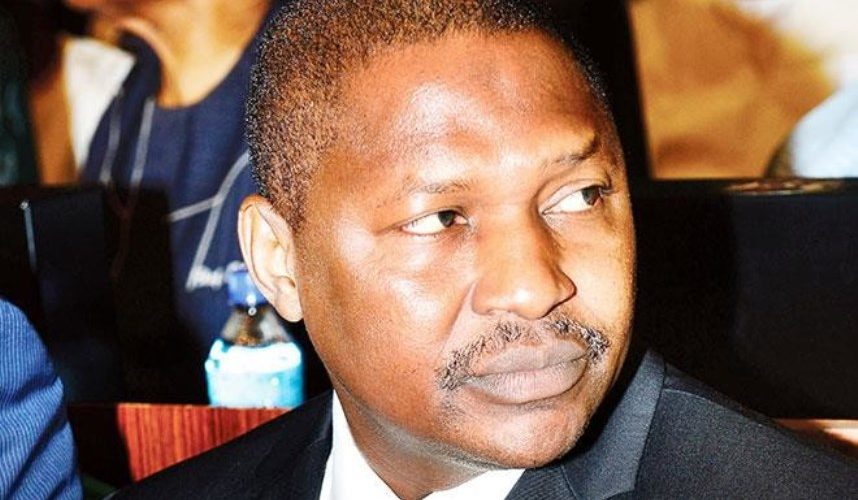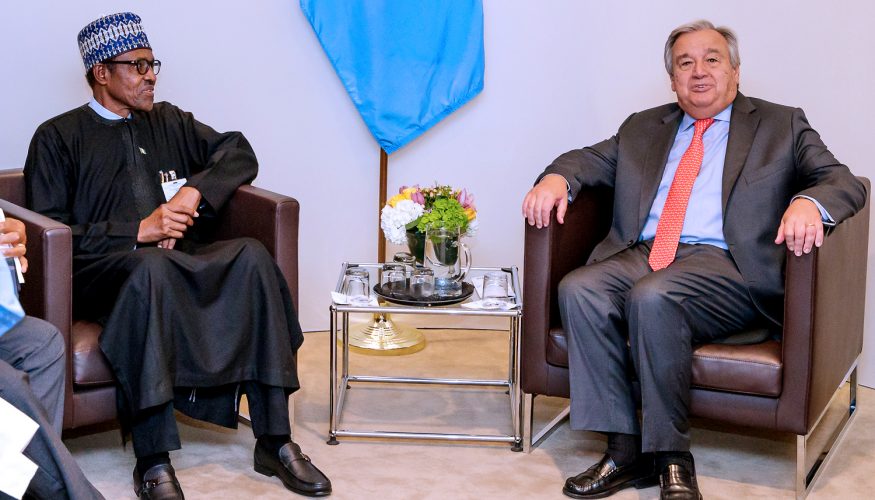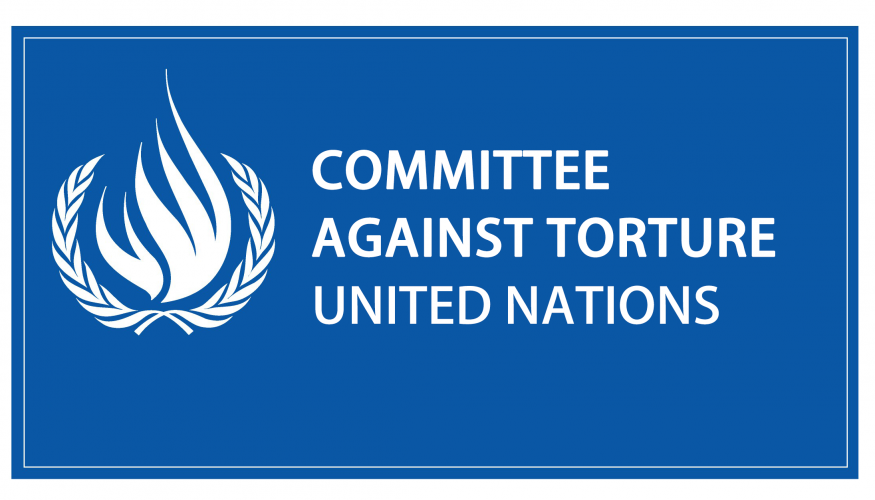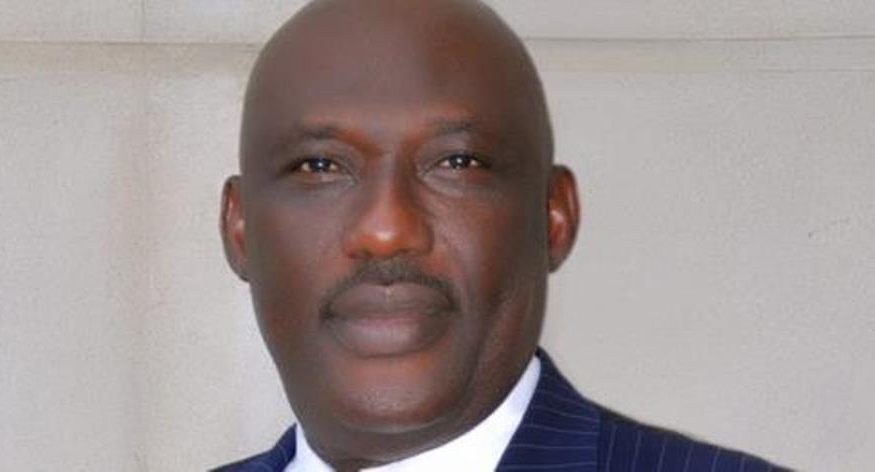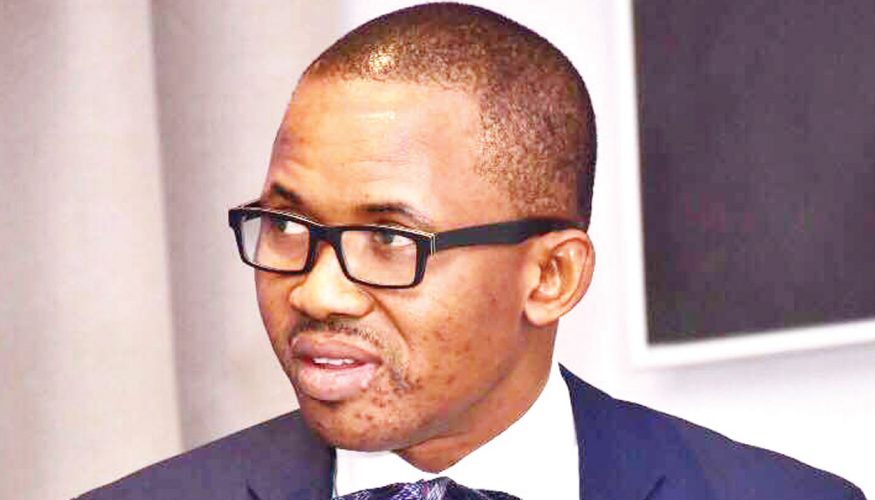Leading lawyer, Chief Joe-Kyari Gadzama SAN has posited that though there is no consensus on the particular areas to be restructured within the Nigerian polity, “there seems to be a general agreement that the Nigeria structure of governance should be reviewed, and at its epicenter, the CFRN.”
Speaking last Monday at the 2021 Law of the Nigerian Bar Association (NBA), Ikeja Branch, the foremost arbitrator stated that “a successful review of the CFRN to alter the governance structures and reflect true federalism coupled with religious implementation of the altered structures, will set the foundation for a Nigeria of our dreams; a Nigeria whose dream can be echoed with belief and hope from the rainforest of the South to the windy desert of the North by all Nigerians.”
The theme of the Law Week is “The Nigeria of our dreams.”
Below is the full text of Gadzama’s presentation.
THE NIGERIAN STATE AND THE CALL FOR RESTRUCTURING
Being the Full Text of a Presentation
By
Chief Joe-Kyari Gadzama, OFR, MFR, SAN, FNIALS, FICMC, DiplCArb, FCIArb, FNICArb, C.Arb
(Of Lincoln’s Inn, Barrister/Life Bencher/Certified Mediator/Regulatory Consultant)
Bobajiro of Akure Kingdom.
ON THE OCCASION OF THE NIGERIAN BAR ASSOCIATION IKEJA BRANCH LAW WEEK
HELD ON MONDAY, JULY 12, 2021
PROTOCOL
APPRECIATION
I thank the Organizers of this Law Week as well as the leadership of the Nigerian Bar Association (NBA) Ikeja Branch (the Tiger Branch) for not only inviting me to attend but also to speak at this auspicious occasion. My topic is the Nigerian State and the call for restructuring which shall be discussed within the context of the theme – the Nigeria of our Dreams.
INTRODUCTION
There is a wide gap between dreaming and day-dreaming. Day-dreaming is a quick elusive delink from one’s immediate reality followed by a transition to quixotic ideals. The Freudian Theory posits that dreams are manifestations of one’s deepest desires and anxieties having the tendency to cause occurrence of creative thoughts to the dreamer or give a sense of inspiration . Hence whilst the former can be likened to a mere mirage of fantasies, the latter is a more deeply immersing series of thought processes in one’s sub-consciousness capable of spurring up creative ideas to translate this reality to manifestation. We cannot overstate; dreams are important as they encompass goals and more. Dreams give one’s life purpose, direction, and meaning. They shape life choices, help to build towards the future and create a sense of control and hope. The same can be applied to a nation. A country needs a dream, hopes and a purpose to move on.
I was almost born in Cameroon; in a Nigerian town called Mubi, situate at the Nigerian-Cameroonian border. I am therefore a proud but not an arrogant Nigerian. As a rising chap, I grew up with a curious mind nursed with knowledge from my immediate family and school. I began my primary education in Kainji in old Kwara State but now Niger State, I continued my elementary school at L.E.A. (Methodist) Primary School, Ibrahim Taiwo Road, (Formerly Market Road) Kaduna State, and L.E.A. (St. Michael-Anglican) Primary School, Sabon Gari, Kaduna State where I completed my primary education. Later on, I moved to Teachers’ College, Song, Adamawa State. Thereafter, I attended Borno College of Basic Studies (BOCOBS), Maiduguri now in Bama, and University of Maiduguri, Borno State, where I obtained my Bachelor of Laws degree after which I proceeded to the Nigerian Law School in Lagos and obtained my Barrister at Law qualification to practise. Throughout all these formative years, as I journeyed through transitional experiences including and or hearing about the Nigerian Civil War (1967-1970), I harnessed different dreams for myself, my family and my country, Nigeria.
Like me, I know many fellow concerned Nigerians have earnest dreams for our great Nation. However, whether these dreams have found fruition or yielded manifest results remain a recurring rhetoric we must all ponder on. Rhetorically, have these dreams been achieved? Can we say for certain that we live in an ideal Nigeria? Or can we at least say that we are on the right course towards achieving the Nigeria of our dreams? Why are we not living the Nigerian dream? Indeed, who bells the cat for the current predicament of Nigeria? Do we blame the professionals, the technocrats, the scientists, the businessmen or the entrepreneurs? Your guess is as good as mine; certainly not! The questions are endless and the answers are not forthcoming.
The aphorism which says, “A fish rots from the head down” speaks volumes of truth on this subject. Although we may blame non-partisan and apathetic followership as having played a role in the quagmire, the overall and root cause of the problem is lack of quality, devoted and objective leadership born out of true democracy and patriotism. Sadly, leadership in our country has not been motivated by true federalism, fairness, equity, nationhood and good conscience. Rather, we have continued to experience a blatant scene of tribalism, nepotism, favoritism, unfair politicization of government policies, impunity, corruption and insecurity. Despite these setbacks impeding the materialization of our dreams for Nigeria, we must continue to dream.
The idea of developing and sustaining a national dream is to ensure that at every time in the nation’s existence, there are short-term, medium and long-term strategies set up to drive the nation towards living true to its strength and potentials for the benefit of its citizens. These laid down strategies will form the substratum of all the policies of its governments at all levels.
The idea of a national dream cannot be discussed without a reference to the famous “American Dream”. The American Dream which birthed the America we now celebrate, is the core American philosophy; that anyone, regardless of where they were born or what class they were born into, can attain their version of success in an egalitarian society. The American Dream is considered as a national ethos for the United States and embedded in it are the ideals of democracy, rights, liberty, opportunity and equality which are expected to shape and guide every government in the United States at the Federal, State and County level. The anticipated outcome is that these ideals will provide the environment for everyone to access the opportunity for prosperity and success as well as upward social mobility, so long as they are ready to work hard no matter the barriers. According to James Truslow Adams the American Dream guarantees that “life should be better and richer and fuller for everyone, with opportunity for each according to ability or achievement” regardless of social class or circumstances of birth. This essentially forms the foundation of America’s constitutional democracy.
In the case of Nigeria, we can only refer faintly to the lofty dreams and hopes of our foremost nationalists who ensured the birth of Nigeria but not a national dream per se. The closest semblance to a national dream in Nigeria would be the Preamble of the Constitution of the Federal Republic of Nigeria 1999 (as amended) (CFRN), but that CFRN has often been adjudged to be document not emanating from Nigerians. Hence, the question; shouldn’t Nigeria at 60 years and more of independence be guided by a united purpose encapsulated in a national dream? Who knows, maybe the avenue provided by the NBA-Ikeja Branch during her law week will grow the momentum to have a workable and realizable Nigerian Dream.
THE CALL FOR RESTRUCTURING: A GUIDE TO THE NIGERIA OF OUR DREAMS
Given the opportunity as one of the speakers to speak at this auspicious occasion, permit me to be part of the people proffering workable solutions in line with the dictates of our callings to always provide solutions to legal issues as can be seen infra.
There is no doubt that the Constitution of the Federal Republic of Nigeria 1999 (as amended) (CFRN) makes bold statements as to the system of governance the Nigerian State is to practise. The system professed without a doubt is Federalism . Federalism connotes a system of governance built on the strengths of a nation’s federating units. However, the provisions of the CFRN make the practicability of federalism a herculean task or even an impossible feat. I firmly believe curing some of these provisions might just be the flame that spark-kindles and sets ablaze Nigeria’s prosperity to create a Nigeria we all love and enjoy living in. In the quest to realizing a Nigeria of our dream, the practicability of federalism I believe, is the linchpin.
The not so fulfilling provisions of the CFRN especially regarding the practice of federalism, now popularly described in Nigeria as “true federalism” has continued to generate agitations for the review and further review of the CFRN. Some even advocate for a complete repeal of the CFRN. This outcry has found the umbrella name of ‘restructuring’. Though there is no consensus on the particular issues to be restructured, there seems to be a general agreement that the Nigeria structure of governance should be reviewed, and at its epicenter, the CFRN.
I share this sentiment and honestly believe that a successful review of the CFRN to alter the governance structures and reflect true federalism coupled with religious implementation of the altered structures, will set the foundation for a Nigeria of our dreams; a Nigeria whose dream can be echoed with belief and hope from the rainforest of the South to the windy desert of the North by all Nigerians. To this end, below are some of the key areas I sincerely believe the CFRN should be amended to reflect the structure that can birth a Nigeria of our dreams:-
1. The Preamble of the CFRN
The preamble is often the first content any reader of a statute comes across. It sets the tone and shapes the mind of the reader on his/her expectation of all the provisions contained in the statute. The Preamble of the CFRN houses the mission and vision of the Constitution. As such, it plays a pivotal role in defining to the mind of everyone reading it and the aspirations of Nigeria as a country. Unfortunately, the Preamble to the CFRN rather than narrate the dreams of Nigerians for us as a nation, breaths an air that lends affinal to the military regime. Notwithstanding that the Preamble is merely cosmetic and that the CFRN was handed down by the military regime, I believe that having had some years of civil rule coupled with the consistent progress of altering the Constitution to suit the new reality, it is desirable to alter the Preamble to reflect the dreams of the Nigerian people.
2. Local Government Administration and Autonomy
The current structure for the administration of the local governments under the CFRN sits on the fence between the federal system – which the Constitution was intended to profess – and the unitary system of governance. At best, the local government system has remained an idea in search of relevance. The local government administration system still breaths an air of the centralization model introduced under military rule and thus, betraying the ideals of federalism which we profess to practise under the CFRN. The ultimate goal for the creation of the local government administration system under the CFRN was to bring the government closer to the people at the grassroots. It was also to accelerate development and enable the local population to participate and hold those in power accountable for their governance roles. Unfortunately, the current provisions for local government as the third tier of government under the CFRN have failed to establish a viable structure to attain the aforementioned goals.
Section 7 (1) of the CFRN provides that “The system of local government by democratically elected local government councils is under this constitution guaranteed; and accordingly, the government of every state shall, subject to section 8 of this constitution, ensure their existence under a law which provides for the establishment, structure, composition, finance and functions of such councils.” The constitution assumes that the law and framework regulating the local government administration would be made by the State Houses of Assembly. Hence, the constitutional legal framework does not see or recognize the local government as the third tier of government, but merely as an appendage of the state government where the states enjoy absolute discretion over the local governments’ operations. This does not reflect the ideals of federalism.
Furthermore, the introduction of the State Joint Local Government Account (SJLGA) provided for under Section 162(6) of the CFRN has thwarted in essence the financial structure of the local governments. This provision ensures that all finances of local governments are appropriated by the State at its pleasure. This is so despite the provisions of section 162(3) which captures a disbursement of the amount of credit in the Federation Account to the Federal, State and Local Governments respectively.
The above queries show how the provision of section 2(2) of the CFRN is undermined by provisions within the same Constitution. I believe that in making progress, the Local Government should be unambiguously established under the CFRN as an autonomous unit of government with its administrative structure and functions as in Chapter V, Parts I and II for the Federal and State Governments respectively. The above provision should override the pretence expressed in section 7 of the CFRN. Also, the SJLGA regime should be jettisoned from the CFRN and replaced by a new regime of fiscal federalism where Local Governments will access their funds directly and be accountable for all that is allotted to them.
3. Federal Structure and Power Devolution
It has been said that the centralized nature of powers of government under the Nigerian federal system is the major bulwark standing against equal and progressive development of states and local government areas. It also stands against the effective exploration of the resources in Nigeria for development purposes. I believe that the need to devolve some of the powers vested at the centre will also serve the interest of the government in providing Nigerians with the opportunity to succeed.
I believe that to have a viable federation with the effective exploration of resources for development and bring dividends of governance closer to the people, certain items must be moved from the exclusive legislative list to the concurrent list. Furthermore, a list of items to be undertaken solely by the local government should be introduced by the Constitution to be called the ‘residual list’. This will mean that the general legislative limitation for the Local Government provided in Section 4(7)(a) of the CFRN should be deleted.
To be more specific, I propose that items 28 on fingerprints, identification and criminal records and 46 on posts, telegraphs and telephones should be moved to the concurrent legislative list as well as the residual legislative list. Furthermore, items 33 on insurance, 43 on patents, trademarks, industrial designs & merchandise marks, 45 on policing & other security services, 48 on prisons, 54 on quarantine, 55 on railways, 58 on stamp duty and 39 on mines, minerals including oil fields, oil mining, geological survey and natural gas, should be moved from the exclusive legislative list to the concurrent legislative list.
4. Nigerian Police and Nigerian Security ArchitectureSection 214 of the CFRN provides for the establishment of the Police Force for the federation. This section displays a system whereby the police is under the management and control of the Federal Government at the expense of the federating units – the State Government. However, this arrangement has so far not favoured the country. The Police have been faced with an avalanche of problems, these issues include the accountability of the Police Force, and the high surge of crimes in different states of the country. The inability of the Police under exclusive Federal control to curb them poses a huge flaw to the federal arrangement. I believe that when policing is closer to the society of its jurisdiction, it enables the police to easily detect and uproot crimes. Where there is a common language known and understood by the police, there would be a free flow of communication and understanding between the police and the people. I believe that the creation of State Police will provide appreciable solutions to the current security challenges and enhance the effectiveness of the police in ending criminality in the country.
Effective security is a pivotal component of the Nigeria of our dreams. I believe every Nigerian agrees with me on this point.
To this end, I will be proposing the moving of item 28 on fingerprints, identification and criminal records, item 45 on police and other government security services and item 48 on prisons from the exclusive legislative list to the concurrent legislative list to allow states to fashion out their respective internal security architecture. This will enable genuine, beneficial and effective collaborations between police forces of each state to the other and the federal police. I believe this reform is long overdue. Each chief security officer of the state should appoint its head, or in the alternative, each state should be given the constitutional leeway to determine how such issues should be handled.
Nigeria must not only profess federalism but be seen to practise its tenets as well. I believe that our resolve to practise ‘true federalism’ will unlock our potentials and make this country a land where Nigeria of our dream can be realised.
5. Fiscal Federalism and Revenue Allocation
In Nigeria today, the resources of the country belong to the federal government, and the fund to be generated is kept in the federation account and is shared monthly among the three tiers of government: the federal, state and local government. This is a misnomer. Federating units are supposed to tap their resources to generate revenue and pay an agreed percentage as tax to the centre or the federal government. This makes the states to be inferior and subservient to the centre. Many activists have been agitating for true federalism to enable the states to control their resources. As observed by Professor Ohwona, there is nothing like true federalism. Either it is Federalism or Unitary. Concentrating the wealth of the country at the centre is an outstanding feature of a Unitary Government. Why is it that some sections of Nigeria are agitating for fiscal federalism in a country that claims to be a federation? The principles of federalism should affect everything. For example, in the US, the federating units manage their resources and pay taxes to the central government. There has never been such agitation. Under the regional government in the first republic, Nigeria made remarkable progress with the three and later four regions using the resources at their disposal to make life meaningful for their citizens.
As highlighted earlier, fiscal federalism must not be a lip service by the CFRN. Revenue allocation must reflect the tenets of fiscal federalism. Every federating unit must understand what resources are within their grasp that can create wealth for them and be allowed to explore it subject to remitting taxes. Access to the exploration of natural resources must be open and decentralized as much as possible, if there is a desire to have a Nigeria we all can declare it as one of our dreams.
6. Residency and Indigene Debate
Indigeneship has become one of the most contested subjects in the country, given its implications for political and economic opportunities. In Nigeria, a person has to be ‘indigene’ to access certain economic and political opportunities at the federal as well as state and local government levels. However, what makes a person indigenous is not formally defined in the CFRN.
The CFRN recognizes indigeneship in some sections. Section 147(1,2 &3) in providing for the appointment of Minister of the Federal Government recognizes the principle of Federal Character under section 14(3). Similarly, section 171 (5) of the CFRN makes it mandatory that the President shall comply with the federal character principle in the appointment of other key public officers of the Government of the Federation including the ambassadors, high commissioners and permanent secretaries or heads of any extra-ministerial departments of the government of the federation.
Despite the indigeneship principle, political and economic imbalances still exist amongst the various states or ethnic groups that make up Nigeria and this is as a result of its implementation. The inclusion of the federal character principle in Chapter II Constitution which is ordinarily non-justiciable hinders its smooth implementation and enforcement because it deprives citizens of the locus to approach the court to enforce the principle of federal character. This incites the Government to disregard the principle of federal character in the composition of the Government of the Federation and its agencies.
To flourish as a nation, Nigeria must decide whether to stick with the federal character provisions of the CFRN or jettison the idea completely. If the practice is maintained, then failure to adhere to it must be made justiciable with monumental consequences, otherwise, the provision should be done away with.
Let us have a Christian from Calabar who grew up in Sokoto and govern the State as a Nigerian, and likewise, a Kanuri Muslim who grew in Port Harcourt should enjoy the same privilege. This is by no means an easy path, but the path is a must if Nigeria desires the type of progress that makes it resonate as the dreams of its people. We can do this by providing for residency for a period of say five or ten years.
7. Irreconcilable Provisions in the Constitution
Section 315(5)(d) of the Constitution made the Land Use Act of 1978 a part of the Constitution. Section 2 of the Land Use Act provides thus:
2. (1) As from the commencement of this Act-
(a) all land in urban areas shall be under the control and management of the Governor of each State; and
(b) all other land shall, subject to this Act, be under the control and management of the Local Government within the area of jurisdiction of which the land is situated.
Despite this provision, section 44(3) of the Constitution provides that the entire property in and control of all minerals, mineral oils and natural gas in under or upon any land in Nigeria or in, under or upon the territorial waters and the Exclusive Economic Zone of Nigeria shall vest in the Government of the Federation and shall be managed in such manner as may be prescribed by the National Assembly. This is reinforced by Item 39 in the Exclusive Legislative List. A true federal structure requires that Item 39 should be moved to the Concurrent List and section 44(3) amended.
Another irreconcilable difference – Items 27-29 in the Concurrent Legislative List. The Items give powers to the National and State Assemblies to establish institutions for the purpose of university, technological or professional education. Yet the Federal Government established the Joint Admissions and Matriculation Board to regulate admissions into tertiary institutions and the National Universities Commission to regulate these institutions. In consequence, we need to re-visit section 4(5) of the Constitution that provides that if any law enacted by the House of Assembly of a State is inconsistent with any law validly made by the National Assembly, the law made by the National Assembly shall prevail, and that other law shall, to the extent of the inconsistency, be void. Why should the federal law prevail over matters in the Concurrent List where the State Assemblies can validly make laws? In other words, we should re-visit the ‘doctrine of covering the field’. This doctrine is inconsistent with the federal principle. States should be allowed to establish and regulate tertiary education in their States. States should be allowed to develop at their own pace.
CONCLUDING REMARKS
As I conclude, it is not lost on me that there has been many lofty written and spoken recommendations in the past, some have even gone ahead to develop a national dream for Nigeria, however, we as a nation seemed to have stepped on chameleon feaces, hence stagnant. No doubt, a dream is important so is the path to its realization. I believe that the growing awareness of this discussion in Nigeria is gradually bringing us to a point of unison, where we all can together re-design a Nigeria of our dreams.
As the process for alteration of the CFRN is ongoing, we must continue to speak to our elected representatives at the National Assembly to critically consider, for the sake of national cohesion, integration and prosperity of the country, various workable proposals already submitted in the course of public hearing recently conducted. The era of standing aloof watching our legislators to do as it pleased them is over, now it is time to get involved. Edmund Burke once emphasized thus,
“When bad men combine, the good must associate; else they will fall one by one, an unpitied sacrifice in a contemptible struggle.”
I am here today, reiterating this statement and encouraging everyone of us to get involved. Do not be a spectator, onlooker or bystander, be an active participant so that this process will not be another jamboree but one that brings workable solutions at addressing some of the challenges facing us as a country – please ensure you count and you are counted. We must dust the files now.
Agitations on this discussion were the basis of the 1994/1995 Constitutional Conference, the National Political Reform Conference convened by former President Olusegun Obasanjo in 2005 and the National Conference convened by President Goodluck Jonathan in 2014. These conferences made laudable recommendations that can come to aid in our attempt at re-designing the Nigeria of our dreams.
MY POETIC DREAM FOR NIGERIA
Before I take my seat, please permit to share my poetic dream for Nigeria with you:
I dream of a country that rewards hard work and excellence, irrespective of a person’s social status, cultural belief, faith, tongue, gender chauvinism and circumstances of birth;
I dream of a Nigeria with purposeful, visionary and exemplary leadership which extols national interests above individual and sectional interests;
I dream of a day Nigerians will have leaders that are unifying figures and who command moral authority;
I dream of a Nigeria with free, fair, transparent and credible national elections;
I dream of a Nigeria where humanity is our race, our language is one and indigenship is true to all citizens regardless of residency in any State. I dream of a Nigeria where unity binds all peoples both at home and in diaspora.
I dream of a Nigeria where a nobody can become somebody and a somebody is treated as equal with someone regarded as a nobody in the eyes of the law – where the rule of law is worshipped and the sacredness of justice is not corrupted. I dream of a Nigeria where equity, fairness, transparency and justice thrive above all intents and aspirations of persons.
I dream of a Nigeria inspiring the African continent and the black race to her pride of place in the world;
I dream of a Nigeria where the legal profession and the Bar play a pivotal role in nation-building since we are the primus inter pares.
I dream, I dream and I dream of a better Nigeria where everyone mutually co-exists and lives peacefully with a wide range opportunity to thrive and succeed in any lawful profession, trade or vocation anywhere he or she resides. I dream of a brighter future for our Children and children’s children. I pray that all Nigerians work to make these dreams come to pass in the not too distant future.
Thank you for your attention.
REFERENCES
1. Constitution of the Federal Republic of Nigeria, 1999 (as amended).
2. Proposal for Further Alteration of the 1999 Constitution of the Federal Republic of Nigeria (as amended) by J-K Gadzama LLP, 2021.
3. Mark Abrahams, PhD, LMHC, National Board Certified Fellow in Clinical Hypnotherapy – https://www.quora.com/What-is-the-difference-between-dreaming-and-day-dreaming
4. Sir James Porter’s publications on the Religion, Law, Government, and Manners of the Turks, 1768.
5. Epic of America by James Truslow Adams, 1931.
6. Tess of the d’Urbervilles by Thomas Hardy, 1891.
7. Animal Farm by George Orwell, 1945.
8. Think and Grow Rich by Napoleon Hill, 1937.
9. https://www.britannica.com/topic/federalism
Copyright 2020 CITY LAWYER. Please send emails to citylawyermag@gmail.com. Join us on Facebook at https://web.facebook.com/City-Lawyer-Magazine-434937936684320 and on TWITTER at https://twitter.com/CityLawyerMag. To ADVERTISE in CITY LAWYER, please email citylawyermag@gmail.com or call 08138380083. All materials available on this Website are protected by copyright, trade mark and other proprietary and intellectual property laws. You may not use any of our intellectual property rights without our express written consent or attribution to www.citylawyermag.com. However, you are permitted to print or save to your individual PC, tablet or storage extracts from this Website for your own personal non-commercial use.
